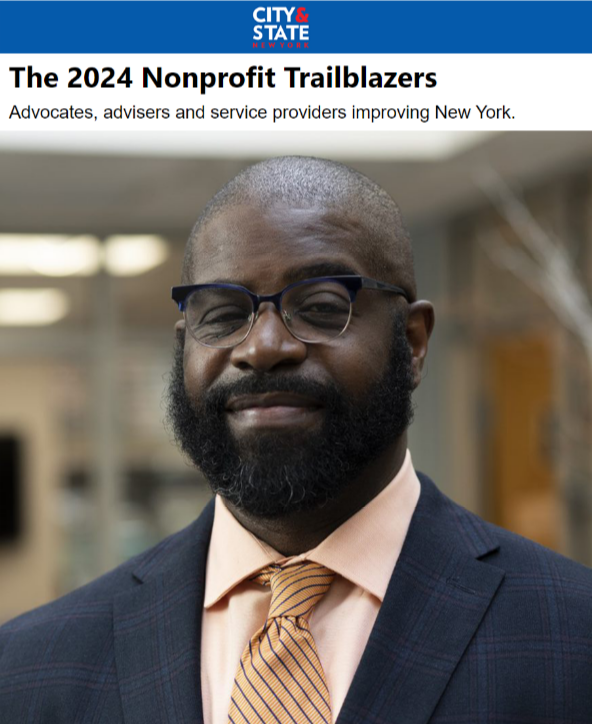
Here at Goddard Riverside, we’ve always seen our president, Roderick L. Jones, as a trailblazer. But it was gratifying to see him recognized by City and State Magazine, which recently named Jones as one of its Nonprofit Trailblazers for 2024.
Jones grew up in the Cypress Hill projects in East New York. He went to college expecting to go into law, but before long he found himself drawn to youth work. He began to rise through the ranks of settlement houses in upstate New York—that is, nonprofits that aim to partner with people experiencing poverty and help them achieve their own goals for self-advancement. Eventually he moved to St. Louis to take the reins of the century-old Grace Hill Settlement House.
In 2017, Jones came back to New York City to assume the top job at Goddard. “I think Goddard Riverside’s role is building and contributing to a just society — in our neighborhood and New York City,” he said at the time. “And its role is enabling people to make the best choices they can for themselves and their families.”
Since then, Jones has led us through the completion of our merger with Lincoln Square Neighborhood Center and is now leading us through a merger with the Stanley M. Isaacs Neighborhood Center on the Upper East Side.
That growth was necessary, he said, to broaden the range of programs we deliver. “We recognize that what people need often spans age groups and is often diverse,” he explained. With a wider variety of programs, we’re more able to meet people where they are.
“Now it’s time for the rubber to hit the road, and we will go through a pretty large-scale strategic planning effort to be able to deliver against our vision,” he added.
That vision focuses on longterm and comprehensive approaches to creating real change in the lives of people. It includes two key projects that span multiple programs. The first is Pathways for Youth, which surrounds young people aged 14 to 26 with a variety of routes to successful adulthood. Those paths include tutoring, youth programs, alternative ways to complete a high school degree, support to get into and complete college, workforce training, and job placement.
“It’s a comprehensive person-centered approach to make sure that young people arrive at adulthood ready and prepared to participate in society,” Jones said.
The second is Whole Family economic development, which focuses on working with multiple generations to overcome economic oppression and rise out of poverty.
“We find that a grandparent may get the family out of poverty and within a generation the grandkids are back in it—because the building blocks are not there for generations to participate,” he explained.
The end goal for all our work, he added, is to do more than simply provide services—what he calls “transactional change”—and instead empower individuals and families to achieve lasting “transformational change.”
“I think it will be a significant lift over the next three years,” he said. “But I think we’ll be pleased over the next two decades as we see people’s lives change.”